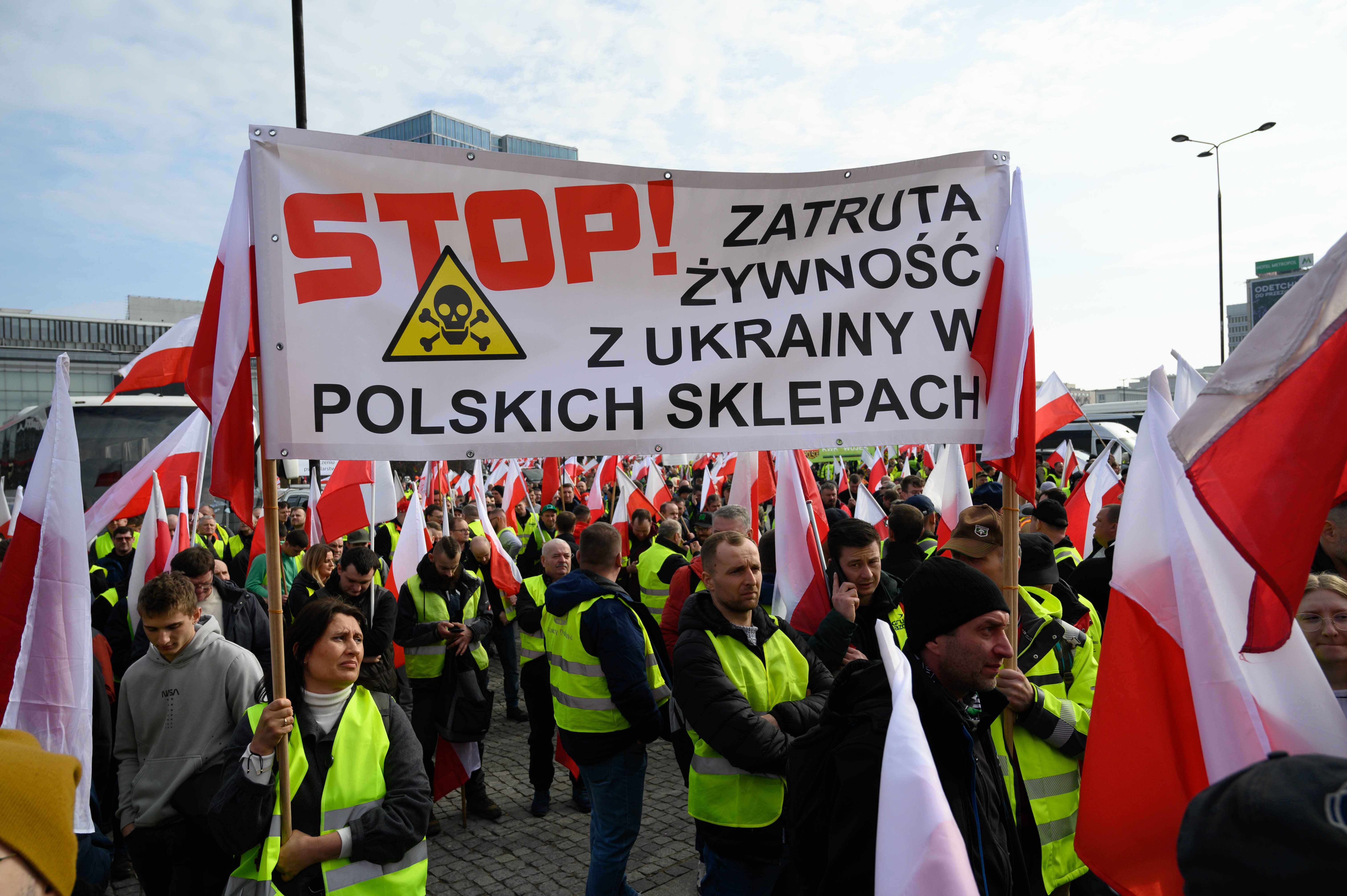In an attempt to ease tensions with their Polish neighbors, Kyiv says it is prepared to accept EU restrictions on Ukrainian agriculture exports.
The situation: Following Russia’s invasion two years ago, the EU showed solidarity to Kyiv by slashing agriculture tariffs on Ukraine, a leading grain exporter. As a result, Ukrainian grain flooded Poland and other neighboring markets, undercutting local prices.
Polish farmers and truckers have been protesting in response. Ukraine is keen to stay on good terms with one of its biggest military backers, and is only asking for EU sanctions on Russian agricultural products in return for accepting restrictions.
Poland’s prime minister has backed that compromise, but an EU-wide ban would be difficult to achieve, as several member states fear it would destabilize global markets and aggravate economic and social crises in developing countries. Russia is, after all, the world’s largest exporter of grain, and its global exports rose 36% last year, including 1.54 million tonnes of grain to the EU itself.
Officials from the two countries will meet again next Monday and hope to resolve the dispute before the end of the month.
